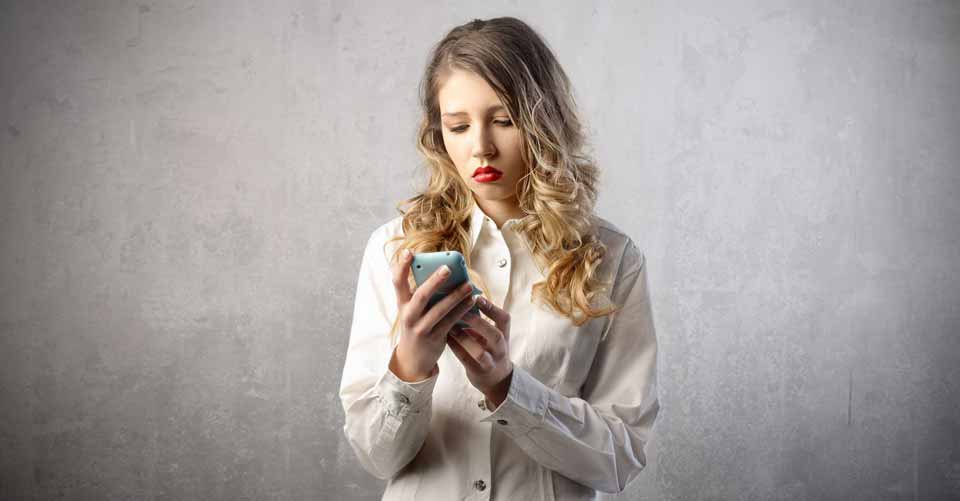
There is a (not-so) surprising trend going on in the world and it can cause damage in relationships and lead to depression. Society might just be overly-connected to their phones and not-connected-enough to the people in their lives.
Have you ever been out with your significant other and instead of talking to them, you are on your phone, messaging someone else or responding to an email etc? I know you’ve had it done to you because I have had it done to me- countless times. I usually feel like throwing whatever is close at hand in the other person’s face but violence doesn’t solve anything. This act of choosing your phone over your partner of friend is called “phubbing.” A combination of “phone” and “snubbing” has brought forth this portmanteau, and in case you have never heard that word before, a portmanteau is basically the smooshing of two words to create a new one.
James A. Roberts and Meredith David conducted research at Baylor University on this subject. What they found was the use of cell phones is damaging to romantic relationships and leads to higher levels of depression. Roberts and David administered two separate surveys which had a total of 453 participants to determine the effects of “phubbing.”
Roberts explained, “What we discovered was that when someone perceived that their partner phubbed them, this created conflict and led to lower levels of reported relationship satisfaction. These lower levels of relationship satisfaction, in turn, led to lower levels of life satisfaction and, ultimately, higher levels of depression.”
The initial survey of 308 adults gave Roberts and David the information needed to create a “Partner Phubbing Scale”. This scale included common smartphone behaviours which the participants regarded as snubbing. The scale includes statements like:
• My partner places his or her cellphone where they can see it when we are together.
• My partner keeps his or her cellphone in their hand when he or she is with me.
• My partner glances at his/her cellphone when talking to me.
• If there is a lull in our conversation, my partner will check his or her cellphone.
“Phubbing is conceptually and empirically different from attitude toward cellphones, partner’s cellphone involvement, cellphone conflict and cellphone addiction,” Roberts says of his study.
The second survey measured 145 romantic couples with their involvement and reaction to phubbing. This was partly done by asking those involved to respond to the 9-item scale created from information from the first survey. The results from the second survey indicated that:
• 46.3 percent of the respondents reported being phubbed by their partner
• 22.6 percent said this phubbing caused conflict in their relationships
• 36.6 percent reported feeling depressed at least some of the time
“In everyday interactions with significant others, people often assume that momentary distractions by their cell phones are not a big deal,” David said. “However, our findings suggest that the more often a couple’s time spent together is interrupted by one individual attending to his/her cellphone, the less likely it is that the other individual is satisfied in the overall relationship.
“Specifically, momentary distractions by one’s cellphone during time spent with a significant other likely lowers the significant other’s satisfaction with their relationship, and could lead to enhanced feelings of depression and lower well-being of that individual. Thus, when spending time with one’s significant other, we encourage individuals to be cognizant of the interruptions caused by their cellphones, as these may well be harmful to their relationship.”
To explain this a bit more, Roberts added that those who had tendencies to be less secure in their relationships, also known as anxious attachment styles, reported higher levels of cellphone conflict than those who were more secure in their relationships. Also, having a decreased level in relationship satisfaction (partly from being phubbed) led to lower life satisfaction, which led to increased levels of depression.
“Given the ever-increasing use of smartphones to communicate between romantic partners, the study helps to understand how the use of smartphones can impact not only satisfaction with romantic relationships, but also personal well-being,” Roberts said.
“When you think about the results, they are astounding. Something as common as cellphone use can undermine the bedrock of our happiness – our relationships with our romantic partners.”
Now that you know what phubbing is, will you try to curb your phone use while you are with your loved ones? We are distancing ourselves from the things that really matter in life, and honestly, it’s saddening. Next time you are out with your partner or even your friend, leave your phone in the car, in your bag, anywhere but in front of the person whose company you are sharing. I promise you it will benefit the both of you more than you know.
Written by Raven Fon


